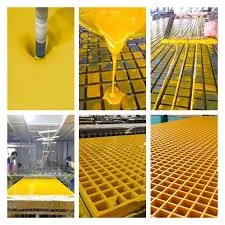
-
 Afrikaans
Afrikaans -
 Albanian
Albanian -
 Amharic
Amharic -
 Arabic
Arabic -
 Armenian
Armenian -
 Azerbaijani
Azerbaijani -
 Basque
Basque -
 Belarusian
Belarusian -
 Bengali
Bengali -
 Bosnian
Bosnian -
 Bulgarian
Bulgarian -
 Catalan
Catalan -
 Cebuano
Cebuano -
 China
China -
 China (Taiwan)
China (Taiwan) -
 Corsican
Corsican -
 Croatian
Croatian -
 Czech
Czech -
 Danish
Danish -
 Dutch
Dutch -
 English
English -
 Esperanto
Esperanto -
 Estonian
Estonian -
 Finnish
Finnish -
 French
French -
 Frisian
Frisian -
 Galician
Galician -
 Georgian
Georgian -
 German
German -
 Greek
Greek -
 Gujarati
Gujarati -
 Haitian Creole
Haitian Creole -
 hausa
hausa -
 hawaiian
hawaiian -
 Hebrew
Hebrew -
 Hindi
Hindi -
 Miao
Miao -
 Hungarian
Hungarian -
 Icelandic
Icelandic -
 igbo
igbo -
 Indonesian
Indonesian -
 irish
irish -
 Italian
Italian -
 Japanese
Japanese -
 Javanese
Javanese -
 Kannada
Kannada -
 kazakh
kazakh -
 Khmer
Khmer -
 Rwandese
Rwandese -
 Korean
Korean -
 Kurdish
Kurdish -
 Kyrgyz
Kyrgyz -
 Lao
Lao -
 Latin
Latin -
 Latvian
Latvian -
 Lithuanian
Lithuanian -
 Luxembourgish
Luxembourgish -
 Macedonian
Macedonian -
 Malgashi
Malgashi -
 Malay
Malay -
 Malayalam
Malayalam -
 Maltese
Maltese -
 Maori
Maori -
 Marathi
Marathi -
 Mongolian
Mongolian -
 Myanmar
Myanmar -
 Nepali
Nepali -
 Norwegian
Norwegian -
 Norwegian
Norwegian -
 Occitan
Occitan -
 Pashto
Pashto -
 Persian
Persian -
 Polish
Polish -
 Portuguese
Portuguese -
 Punjabi
Punjabi -
 Romanian
Romanian -
 Russian
Russian -
 Samoan
Samoan -
 Scottish Gaelic
Scottish Gaelic -
 Serbian
Serbian -
 Sesotho
Sesotho -
 Shona
Shona -
 Sindhi
Sindhi -
 Sinhala
Sinhala -
 Slovak
Slovak -
 Slovenian
Slovenian -
 Somali
Somali -
 Spanish
Spanish -
 Sundanese
Sundanese -
 Swahili
Swahili -
 Swedish
Swedish -
 Tagalog
Tagalog -
 Tajik
Tajik -
 Tamil
Tamil -
 Tatar
Tatar -
 Telugu
Telugu -
 Thai
Thai -
 Turkish
Turkish -
 Turkmen
Turkmen -
 Ukrainian
Ukrainian -
 Urdu
Urdu -
 Uighur
Uighur -
 Uzbek
Uzbek -
 Vietnamese
Vietnamese -
 Welsh
Welsh -
 Bantu
Bantu -
 Yiddish
Yiddish -
 Yoruba
Yoruba -
 Zulu
Zulu
frp chemical product
FRP Chemical Products Revolutionizing Modern Industry
Fiber Reinforced Plastics (FRP) are composite materials that have transformed various industrial sectors due to their exceptional physical and mechanical properties. By incorporating fibers—such as glass, carbon, or aramid—into a plastic matrix, FRP products exhibit remarkable strength, durability, and resistance to corrosion. This unique combination of characteristics positions FRP as a popular choice across numerous applications, including construction, automotive, aerospace, and marine industries.
One of the primary advantages of FRP chemical products lies in their lightweight nature. Traditional materials like steel and aluminum can be quite heavy, leading to increased fuel consumption in transportation applications and added strain in structural uses. Conversely, FRP materials can be engineered to be significantly lighter while maintaining strength, which directly translates into cost savings and enhanced performance in various applications. For example, in the automotive sector, lighter vehicles improve fuel efficiency and reduce emissions, making FRP an attractive option for manufacturers aiming to meet stringent environmental regulations.
FRP Chemical Products Revolutionizing Modern Industry
Furthermore, FRP chemical products are also celebrated for their versatility in design. The manufacturing processes of FRP allow for intricate shapes and forms, making it feasible to produce customized solutions that meet specific application requirements. This adaptability opens the door to innovative designs that were previously unattainable with traditional materials, thereby enhancing aesthetic appeal and functional performance. For instance, FRP can be molded into complex shapes for architectural applications, offering flexibility that architects and designers greatly appreciate.
frp chemical product

In addition to their physical properties, FRP products have excellent insulating characteristics. They can provide thermal and electrical insulation, making them suitable for applications where minimizing heat loss or preventing electrical conductivity is crucial. This feature is particularly valuable in industries such as building construction, where energy efficiency is a growing concern.
Moreover, the environmental impact of FRP chemical products is also worth noting. Many manufacturers are now focusing on producing bio-based or recycled FRP materials, addressing the growing demand for sustainable products. By repurposing waste materials and using sustainable resources in the production of FRP, industries can significantly reduce their carbon footprints and contribute to a circular economy.
Despite the myriad advantages that FRP chemical products offer, there are also challenges associated with their use. Issues related to recycling and disposal remain significant considerations, as the composite nature of FRP can make conventional recycling processes ineffective. However, ongoing research and development efforts aim to address these challenges, suggesting promising future solutions.
In conclusion, FRP chemical products symbolize a significant advancement in materials science, providing solutions that cater to the demands of modern industries. With their lightweight, corrosion-resistant, and versatile properties, FRP materials are set to play a crucial role as industries strive for efficiency, sustainability, and innovative designs. As developments in production techniques continue to evolve, the potential for FRP in various applications will likely expand, further emphasizing its importance in shaping the future of material solutions across the globe. As we embrace these innovations, it is essential to balance performance with environmental considerations, ensuring that FRP contributes positively to our planet's future.









